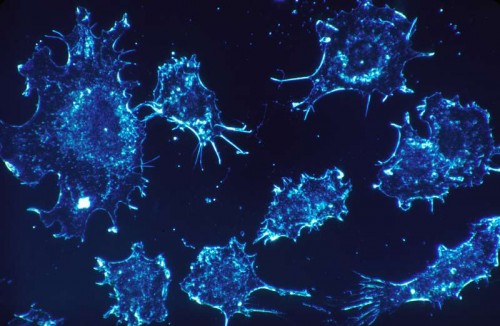 Swollen lymph nodes are often the earliest signs of spread of cancer cells. Swedish researchers have now discovered how cancer cells can infiltrate the lymphatic system by “disguising” themselves as immune cells (white blood cells).
Swollen lymph nodes are often the earliest signs of spread of cancer cells. Swedish researchers have now discovered how cancer cells can infiltrate the lymphatic system by “disguising” themselves as immune cells (white blood cells).
The main reason why people die of cancer is that the cancer cells spread to form daughter tumours or metastases in vital organs such as the lungs and liver.
A route frequently used by cancer cells for dissemination is the lymphatic system.
Upon entering lymphatic vessels, they migrate to nearby lymph nodes which then swell up, and from there, to other organs via the blood.
In the study by Karolinska Institutet’s department of medical biochemistry and biophysics, the team discovered that an inflammatory factor known as TGF-beta can give cancer cells properties of immune cells.
It supplies the surface of the cancer cell with a receptor that normally only exists on the white blood cells that travel through the lymphatic system.
Equipped with this receptor, the cancer cells can effectively target lymphatic vessels and migrate on to lymph nodes just like immune cells.
According to the researchers, their results link inflammation and cancer in a novel way and make possible the development of new treatment models.
“Till date, it was not clear whether there are signals controlling this or whether it was just random,” said principal investigator Jonas Fuxe, associate professor at Karolinska Institute’s department of medical biochemistry and biophysics.
The researchers hope that this finding, published in the scientific journal Oncogene, will lead to the development of new drugs.